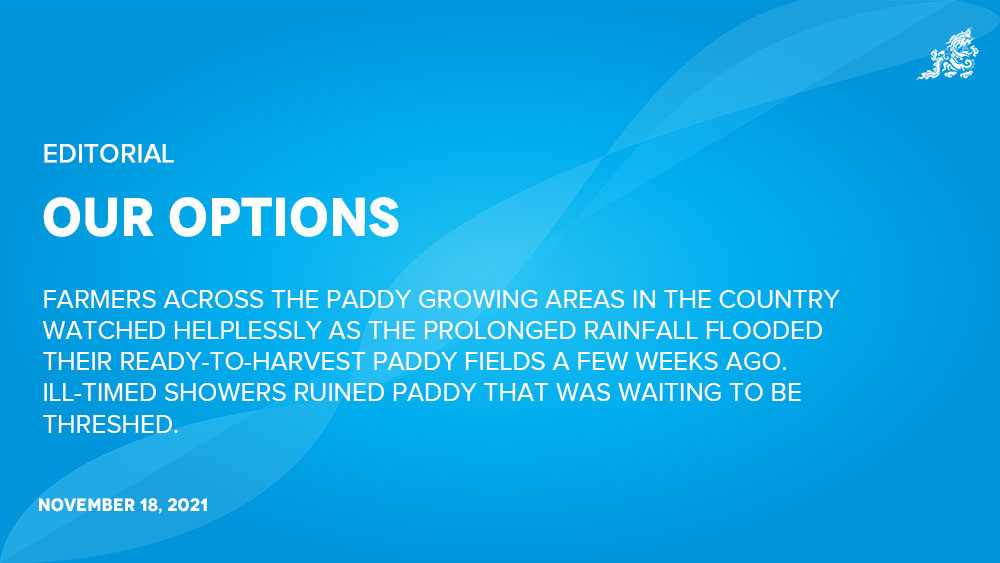Farmers across the paddy growing areas in the country watched helplessly as the prolonged rainfall flooded their ready-to-harvest paddy fields a few weeks ago. Ill-timed showers ruined paddy that was waiting to be threshed.
Similarly, some farmers in the eastern dzongkhags sat helplessly among their dry fields, deprived of a harvest season. Their last resort, prayer ceremonies to the guardian deities, did not seem to help. Meanwhile, farmers in the south have been affected by floods and those in the north by snowstorms.
For the largely agrarian Bhutanese population, the erratic weather is becoming more disconcerting every year. While past generations left it to their fate it is gradually dawning on us that the weather pattern is not going to get any better. With climate change, such events are going to recur more frequently and worse in the future.
The irony is that such a calamity comes at a time when Bhutanese people have never had it so good in terms of consumer goods. In most parts of the country, shops are stocked with the latest fashions and foods from overseas. Young men and women keep up with global trends and with their idols on social media and the television screen.
What is alarming is the knowledge that these natural imbalances are not going to improve. As a recognised global hotspot that has preserved nature better than most countries, it would seem that we deserve better. But we learn that we are victims of human behaviour on a global scale.
Science has made incredible advances and, after spending a lot of time and billions, the intellectual elites have finally concluded that it is basically the unbridled consumption habits of the wealthier sections of the global population that is increasing the pressure on the environment. The demand for fuels and material luxuries has caused a serious imbalance in our ecology.
Bhutan, as a GNH society, knew this long before extensive scientific research was conducted. Buddha said that people would find happiness by wanting less. Not by possessing more.
The world has not learned the lesson and, going by the trends in Bhutan too, we seem to be forgetting it too. Despite enlightened concepts like GNH, we are preoccupied with material well being.
Still, we have no choice but to try. The government, in serving the interests of the people, will come to the rescue as far as food security is concerned. What we need to do is to reach out for higher goals like GNH which stands for a more wholesome lifestyle and a more permanent answer to nature’s problems.
Otherwise, the recent COP26 meeting in Glasgow, Scotland showed that there is not much to look forward to in terms of aid or assistance to tackle impacts of climate change especially for the donor-dependent countries like Bhutan. There is no alternative.


